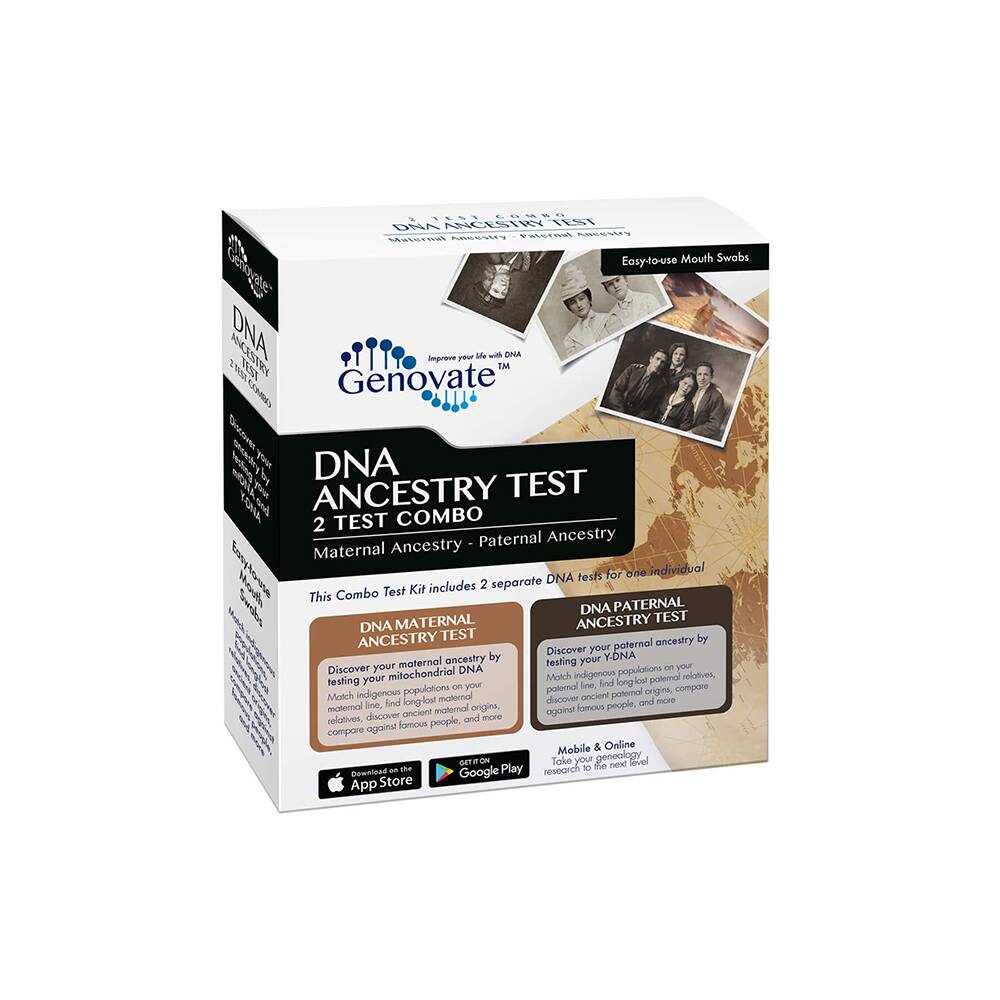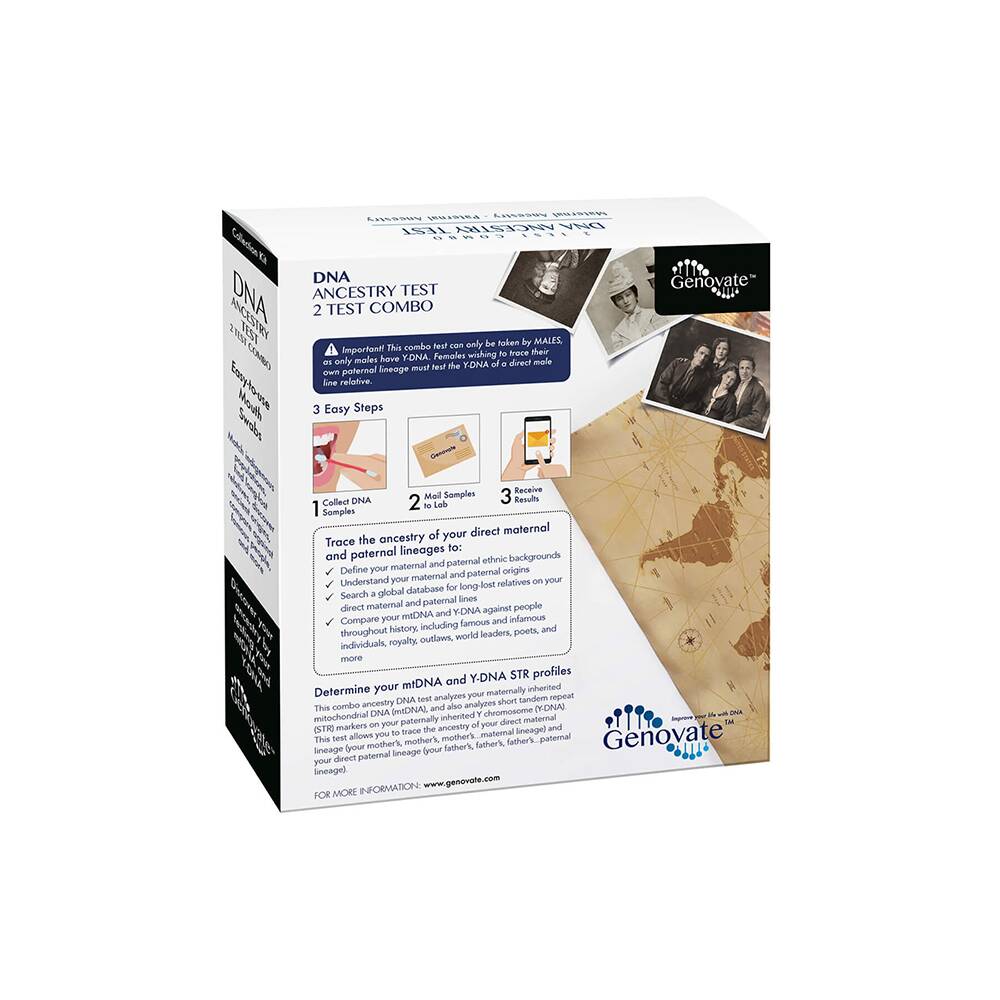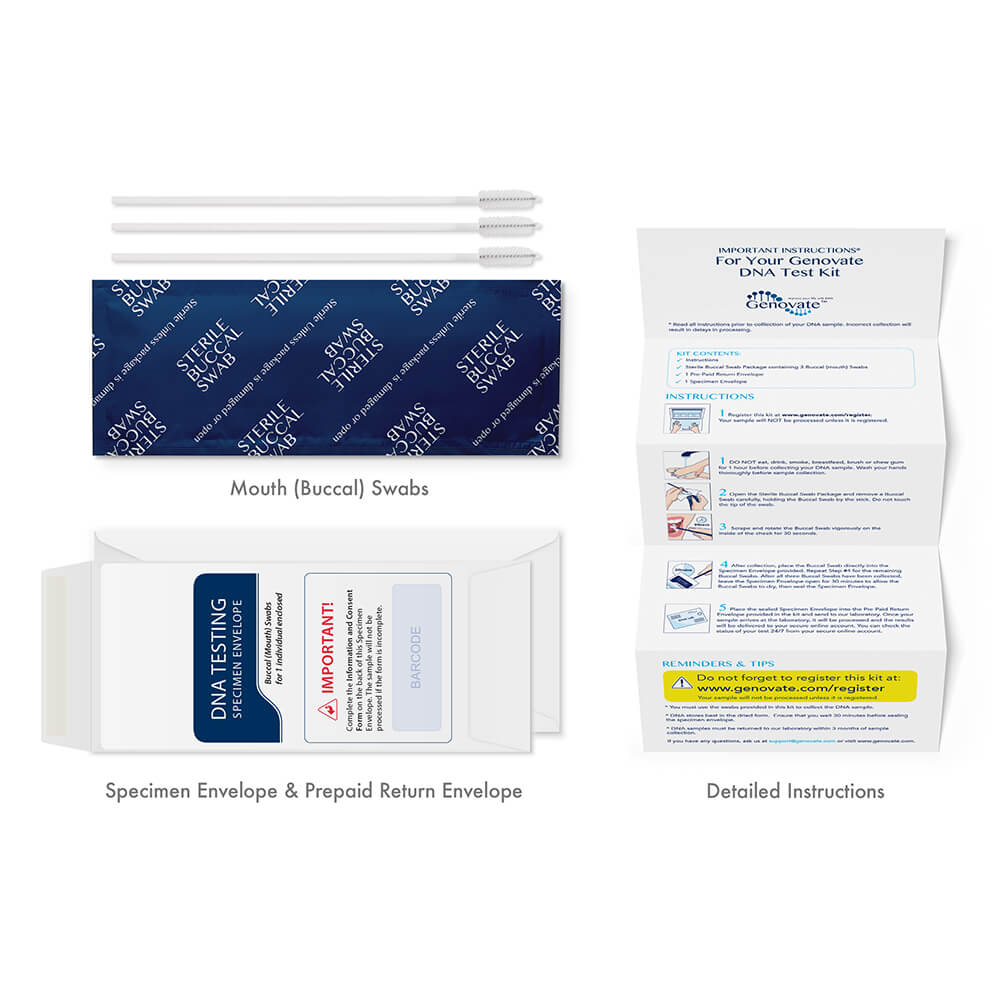Combo DNA Ancestry Test
What’s your DNA story? Trace your maternal and paternal roots & discover new details about your family history with this DNA test.
- Mitochondrial DNA (mtDNA) and Y-DNA STR combo test package
- Access to our extensive databases so you can match your DNA to populations around the world, find long-lost relatives, discover ancient origins & compare against famous people
- Only men can take this test
ABOUT
- Detailed Description
This combo ancestry DNA tests will analyze your maternally inherited mitochondrial DNA (mtDNA), as well as the short tandem repeat (STR) markers on your paternally inherited Y chromosome (Y-DNA). This test allows you to trace the ancestry of your direct maternal lineage (your mother’s, mother’s, mother’s…maternal lineage) and your direct paternal lineage (your father’s, father’s, father’s…paternal lineage).
Important! Only MALES can take this combo test, as only males have Y-DNA. Females are able to trace their maternal lineages through DNA Maternal Ancestry Test (link product page), but if they wish to trace their own paternal lineage, they must test the Y-DNA of a direct male line relative.
Choose from the following options:
- Standard Test: 20 Y-STR markers and mtDNA HVR1 sequence. This is often all that is required to achieve an adequate resolution.
- Advanced Test: 44 Y-STR markers and mtDNA HVR1 + HVR2 sequence.
- Premium Test: 101 Y-STR markers and the full mtDNA genome sequence (HVR1 + HVR2 + Coding Region). This provides the highest resolution.
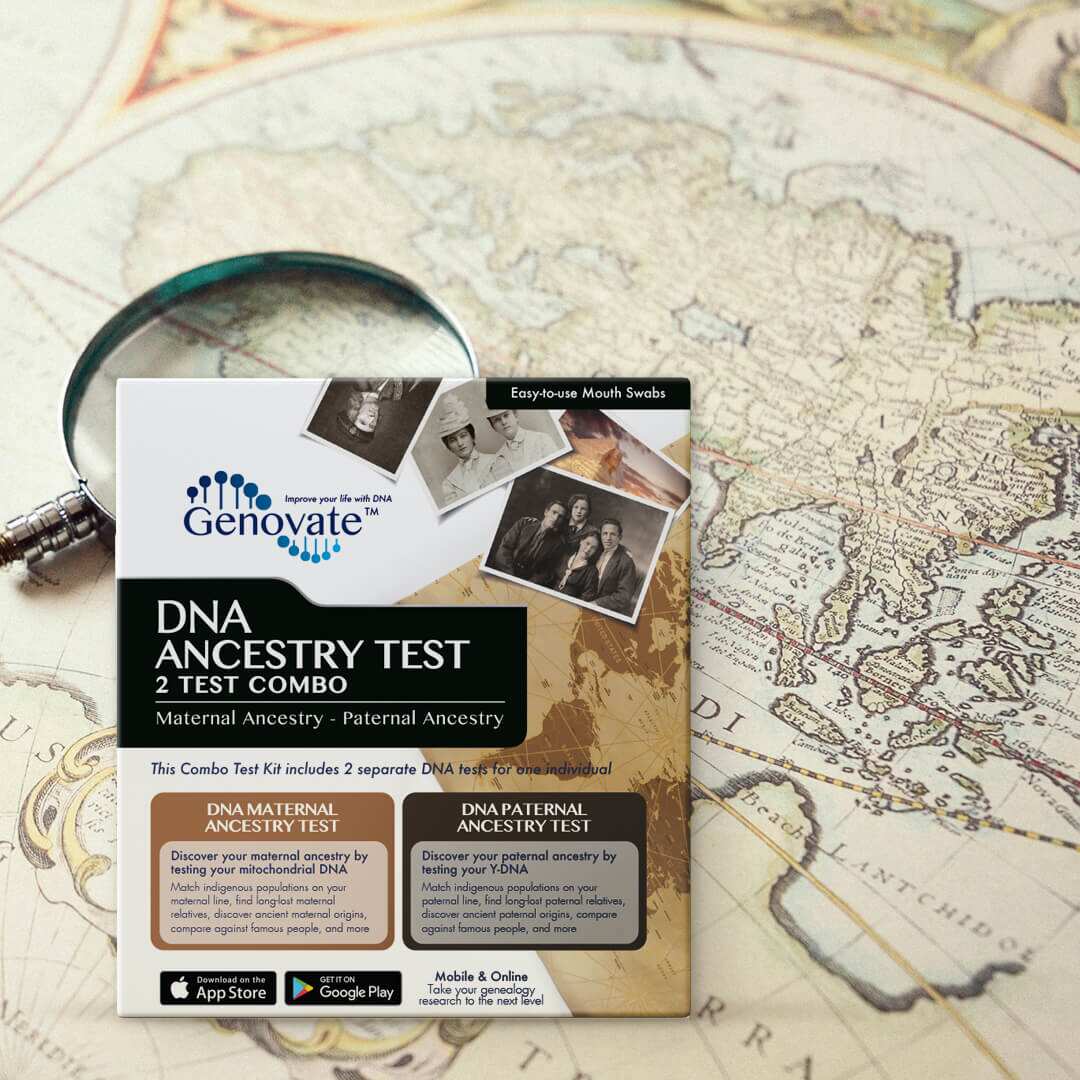
Upgrade Options: A cost-efficient upgrade option is available. You can start by taking the Standard Test. If this region does not provide a high enough resolution, there is an option to upgrade to the Advanced Test or the Premium Test.
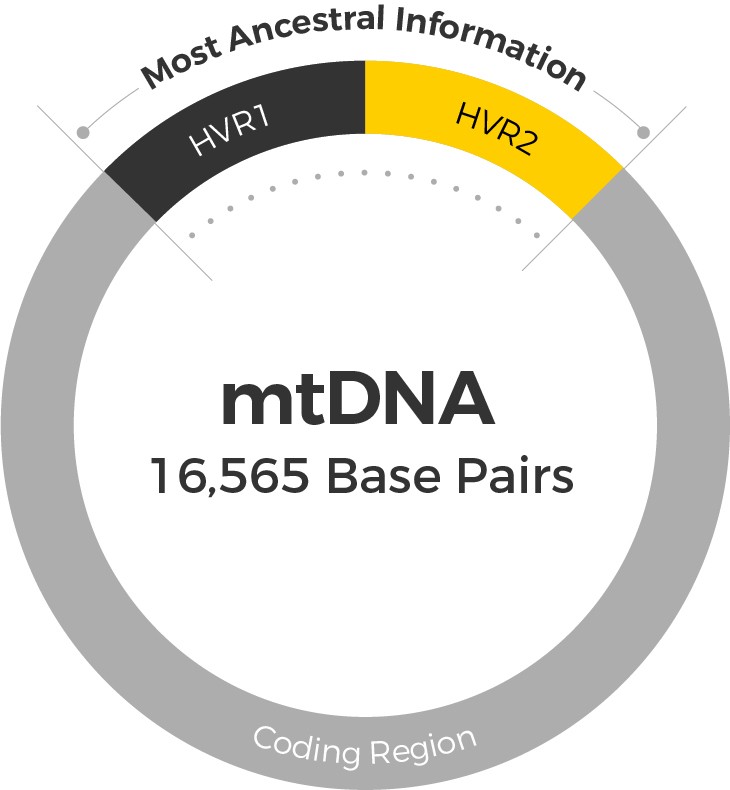
What is mtDNA?
Mitochondrial DNA (mtDNA) is found in the mitochondria of human cells. Each cell can contain several mitochondria, and each mitochondrion contains dozens of copies of mtDNA. So in every cell there can be thousands of copies of mtDNA. This is different from nuclear DNA, since we only inherit two copies of the autosomal and sex chromosomes per cell.
All of us inherit our mtDNA from only our mothers. This mtDNA essentially remains unchanged through the maternal line, providing an incredibly useful way to trace maternal ancestry.
What is mtDNA Sequencing?
The circular mitochondrial genome has three regions – two small hypervariable (HVR) regions and a large coding region. It is possible to sequence just the HVR1 region, both hypervariable regions (HVR1 and HVR2), or the complete mitochondrial genome (HVR1, HVR2 and the coding region).
The hypervariable regions comprise approximately 1100 bases of the mtDNA genome. Most of the variation in the mtDNA occurs in these regions. If two people have a perfect match at their HVR1 and HVR2 regions, further analysis of the much larger coding region can provide a higher stringency comparison and further resolution. The coding region covers the remainder of the mitochondrial genome and the complete mitochondrial genome is 16,569 base pairs.
What’s Included?
The entire DNA sequences for regions tested are provided to you in your mtDNA test report. Your mtDNA sequencing results are compared to a reference sequence called the “rCRS” (revised Cambridge Reference Sequence), and all of the positions within your mtDNA, which differ from rCRS are listed in your report.
Your unique mtDNA sequence result is known as your mtDNA profile.
Since mtDNA is passed down from mother to child along the direct maternal lineage, people who have descended from the same maternal lineage are expected to have exactly the same or very similar mtDNA profiles.
If two people have different mtDNA profiles, it conclusively confirms that they did not descend from the same maternal lineage.
What is Y-DNA?
Y-DNA refers to the DNA on the male sex chromosome – the Y chromosome. We each have 23 pairs of chromosomes: 22 pairs of autosomal chromosomes and two sex chromosomes – the X and Y chromosomes.
Females inherit an X chromosomes from each parent (but no Y chromosome), while males inherit an X chromosome from their mother and a Y chromosome from their father. Very little recombination (mixing) occurs between the X and Y chromosomes in males, hence the Y-DNA essentially remains unchanged through the paternal line, providing an incredibly useful way to trace paternal ancestry.
What is a Y-STR test?
A Y-STR test analyzes markers in the Y chromosome known as STRs or ‘short tandem repeats’.
STR markers are short segments of DNA (2-13 nucleotides in length), which are repeated multiple times. STR analyses measure the exact number of repeat units. The number of repeats differs between individuals because STRs change frequently. Closely related individuals will have similar Y-STR profiles compared to those that do not belong to the same paternal line.
Methods and analysis of Y-STR testing
The Y-STR test determines the number of repeats at each marker tested – either 20, 44 or 101 markers, depending on the requested analysis.
When two individuals take a Y-STR marker test, their STR numbers can be compared to see if there is a match. The confidence with which the Y-STR test can predict a relationship between two individuals increases as more STR markers are tested.
A calculation called “TMRCA” (time to most recent common ancestor) can be performed to estimate how many generations ago the two males likely shared a common paternal ancestor. Comparing more Y-STR markers will provide a higher stringency comparison and a more precise TMRCA calculation.
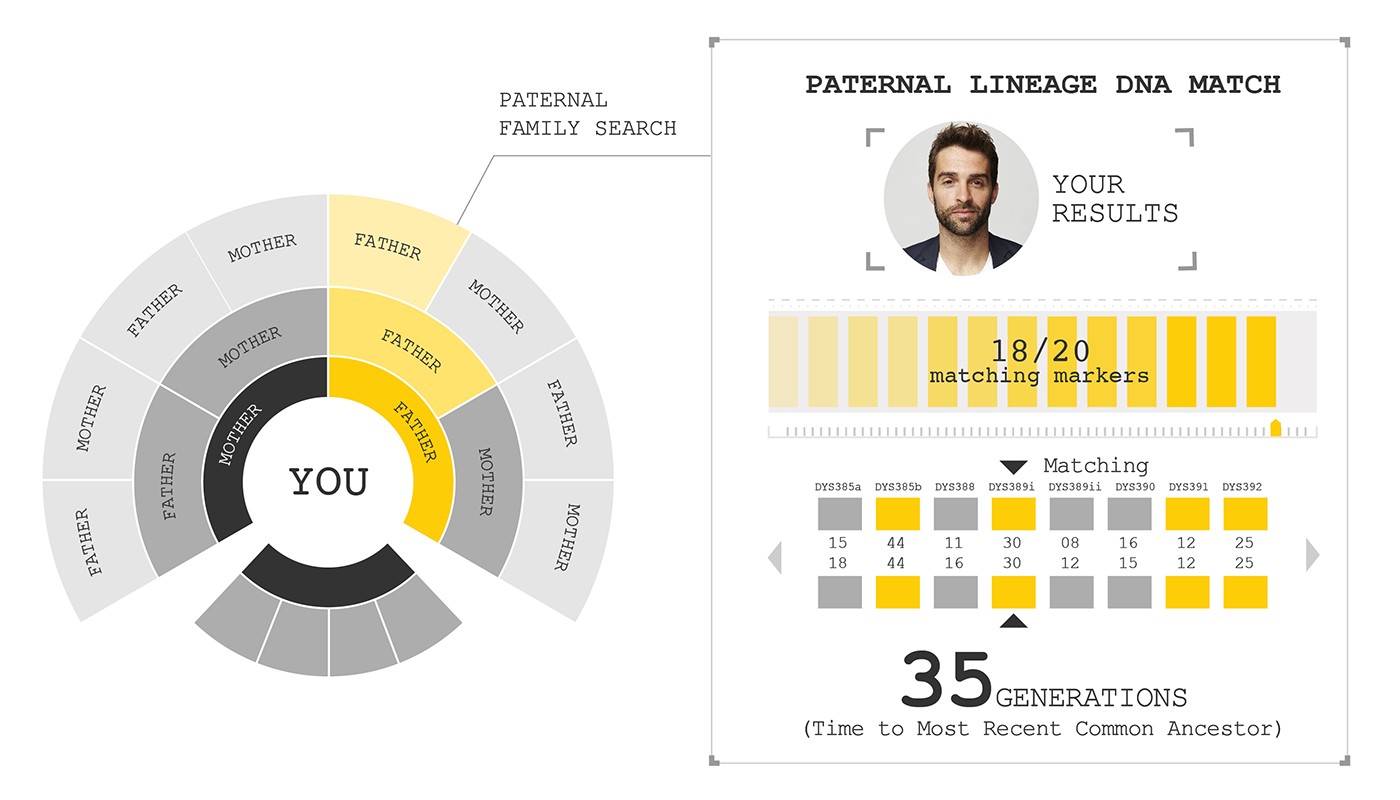
Bring Your Ancestry Research to The Next levels with Four Powerful Complimentary DNA Databases:
DNA Reunion Database
Search for long lost family lines. Ideal for genealogists looking to expand their family tree and confirm or refute family legends, individuals looking for their biological parents and family members separated by adoption or other reasons (e.g. war).
![]() Indigenous DNA Database
Indigenous DNA Database
Trace you ancestry back over 100,000 years to its ancient roots in Africa.
![]() DNA Haplogroups Database
DNA Haplogroups Database
Trace you ancestry back over 100,000 years to its ancient roots in Africa.
![]() Famous DNA Database
Famous DNA Database
Compare your DNA to royalty, famous or notable people in history. Profiles include Marie Antoinette, Genghis Khan, Nicholas Copernicus, King Richard III and more.
- How It Works
Step 1: Order test kit online
Step 2: Collect DNA sample using a painless mouth swab, and mail to the lab in the provided return envelope
Step 3: Receive your results online

